Taxing Problems In Used Car Sales | Dealers Compressed Episode FIVE
Your customers are being overtaxed. You might not even realize it, but it's eating into your profits. The good thing? It's completely within your control.
Subscribe on your favorite podcast platform:
Transcription
Packs and reconditioning rates. What do you currently charge?
Dale wastes no time going head-to-head with the way dealers approach these two areas. Sure, they're a long standing practice, but Dale makes it clear that they are no longer providing the benefits they once did. He goes even further saying that overly high packs and retail reconditioning rates are nothing more than a tax on used vehicles and are doing unnoticed damage to dealers.
Dale expects pushback as dealers argue packs make good business sense and aren't a "tax". But Dale counters this thinking by bringing clarity to his definition of a tax. And he says "a tax is a charge or cost added to a good or service that is not offset by an equal or greater value of the amount of the tax itself." Basically, if you charge it to the car, you have to be able to quantify the return. If the charge is higher than the return, it's a tax.
He takes on packs and retail reconditioning rates separately recounting again his experience as a dealer when the "cost-up" model was used for pricing. Often, the pack balance was used to hedge against unforeseen losses or repairs for certain vehicles and if they didn't come, that make was used to fund facilities or sometimes to pad the owners bank account. Either way, the gross on the used vehicle was taxed.
In today's retail-back approach, measuring and allocating your pack to be level with your actual expense is essential to making better decisions. He notes than dealers who have adopted the retail back approach have cut and sometimes eliminated packs altogether. Retail reconditioning rates have a similar impact. Again, any charge to a vehicle over that of the market value is a tax. Moving money from used cars to the service department is an artificial inflation of fixed operations profits.
Dale says that this type of taxing leads to three manifestations.
First, high packs lead to missed deals at auction. Desk managers are accounting for the high pack and have to walk away from deals leading to inventory shortages.
Second, lower profitability and volume. Dale compares two like dealers in the same market; one that charged $1000 pack and retail reconditioning rates and one that charged a $250 pack and internal reconditioning rates. The latter enjoyed a $500 higher per unit gross and sold twice as many vehicles from an inventory half the size. Additionally, sales managers and staff were more motivated.
Third, inventory age issues. Dale's analysis of the two dealers revealed that the dealer charging the $250 pack and internal reconditioning rates retailed 65% of their inventory within 30 days and had only 7% over 60 days. The other dealer faired far worse with only 40% sold in 30 days and 33% over 60 days.
After further examination of pricing, the struggling dealer had to price their vehicles far above market value to make up for the artificial cost inflation; a lose-lose. Dale says that perhaps the best part of the pack and retail reconditioning fee problem is how quickly it can go away once a dealer decides that the time is right.
I'd be remiss if I didn't mention that Dale appropriately ends the chapter with a paraphrased quote from none other than Winston Churchill. "I contend that for a dealership to try to tax itself into prosperity is like a man standing in a bucket and trying to lift himself up by the handle."















